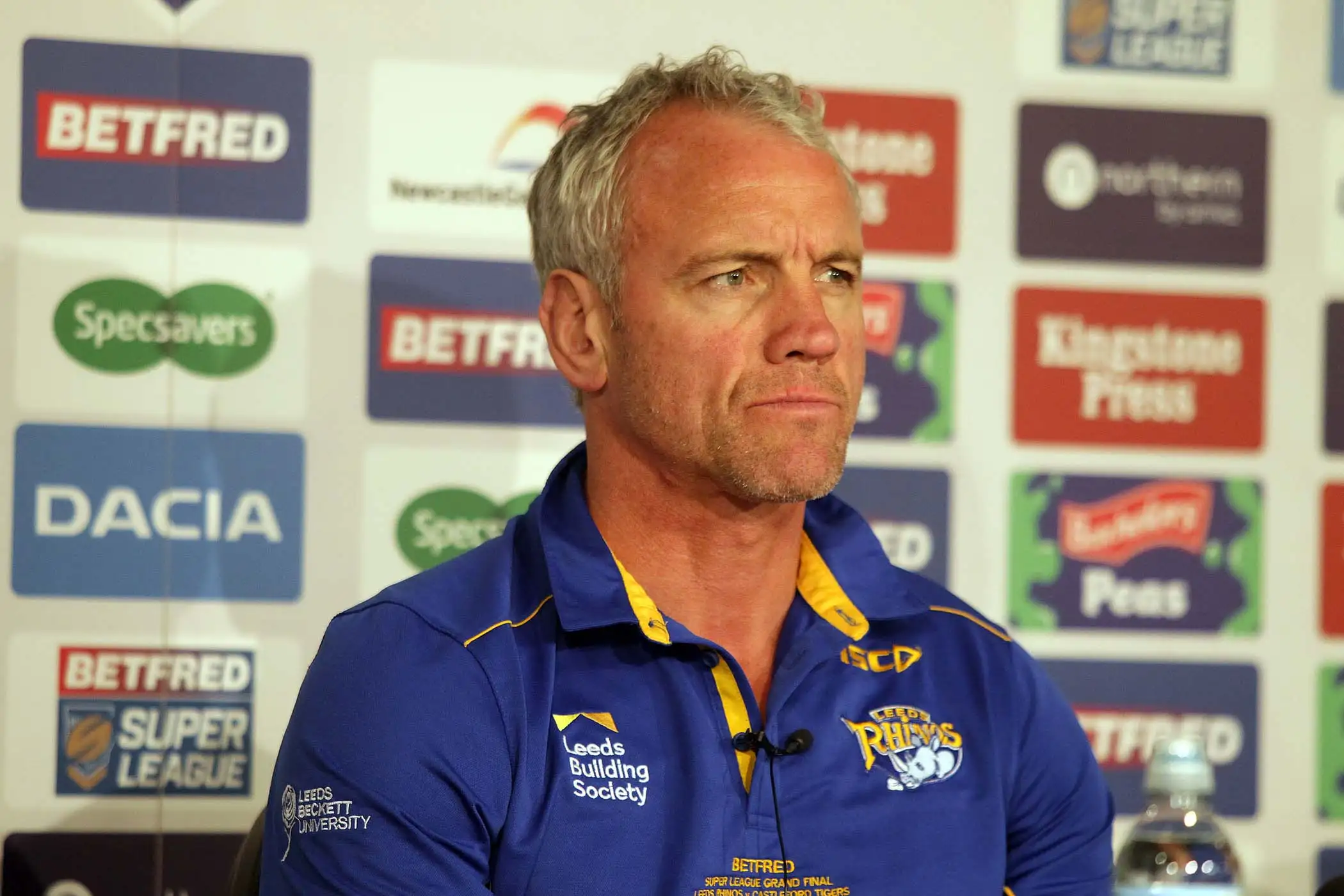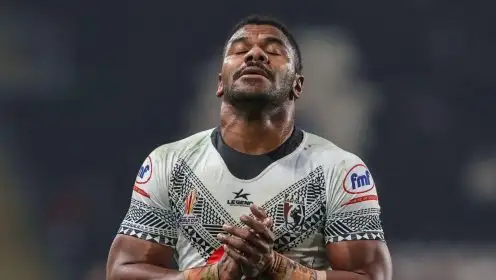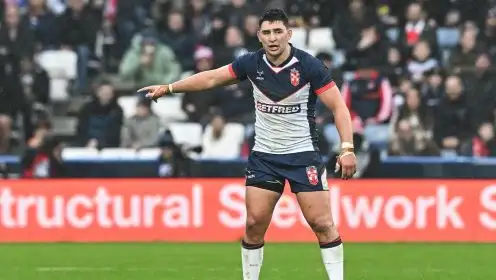In depth: Brian McDermott and the end of an era

It was certainly the end of an era as Leeds announced the departure of Brian McDermott last week.
Despite several injuries to key players, a poor run of form has led to the Rhinos wanting to go in another direction.
Could the situation of been handed differently? Should Leeds have waited to see how the rest of the season panned out?
We will never know and that is what sport is in this modern-day world. An institution so full of hindsight, which in retrospect can be a wonderful thing. It is one of many factors that drives us to watch and conversate sport. The ‘what if’ factor.
However, in a sea of all these unanswered questions, what cannot be questioned though is the legacy that he left behind at one of Rugby League’s greatest dynasties.
In a seven season stretch, Big Mac cemented himself as one of the Super League era’s greatest and most successful coaches. So, that is something to focus on more in depth and in honour of this we take a closer look at the playing and coaching career of Brian Mcdermott…..
Once a marine, McDermott was a one-club man throughout his playing career, becoming a vital part of a formidable Bradford Bulls side of the 1990s and early 2000s. He would begin his rugby league journey in 1994 at the then Bradford Northern, going on to win Super League titles on three occasions in 1997, 2001 and 2003 as well two Challenge Cup victories in 2000 and 2003.
The 2003 Super League win would be the last we would see of McDermott as a player before retiring and turning his attention to coaching, with Harlequins RL being his first port of call. After some time as part of the coaching staff, Mcdermott took charge as head coach for the first time in 2006 before replacing Brian McClennan at Leeds in 2011.
Some might argue that inheriting a team with the likes of Jamie Peacock, Kevin Sinfield, Danny McGuire and Jamie Jones-Buchanann within it makes it difficult to judge his coaching ability. However, this all just adds to the testament of his abilities as a coach. Even with these experienced talismen in the squad, he was still able to establish himself and push them to the next level.
If you look back at his seven seasons in charge, a McDermott led Rhinos never really had a terrific regular season league record but great sides get the job done when it matters most and that was his team’s greatest ability, to perform on the biggest occasion. The former Bulls man’s first two seasons in charge saw them finish fifth on both occasions.
But when it came down to the nitty gritty moments, the end result of those first two seasons in 2011 and 2012 would end exactly the same with Super League Grand Final glory.
McDermott’s time at Leeds was significant for many reasons and in 2014 it became even more so. The Challenge Cup had always proved to be somewhat elusive for the club’s great players, with their 1999 triumph their only win since 1978.
Having suffered defeat in the final no fewer than six times during the summer era, they finally got the curse lifted in 2014 by beating Castleford 23-10 in the final to lift the Challenge Cup.
But it would be the 2015 season that will be forever remembered as one that would embody the Rhinos’ golden decade and the McDermott era.
Before 2015, only five teams had claimed the historic Rugby League treble dating all the way back to 1912. Since then, Huddersfield (1912-13 and 1914-1915), Swinton (1927-28), St. Helens (1965-66 and 2006), Wigan (1991-92, 1993-94 and 1994-95) and Bradford (2005) have all claimed the historic accolade. The Rhinos came into the season perhaps unfancied after a poor 2014 season saw them only finish sixth and get eliminated from the play-offs in the first round, but by the end of 2015, there is no doubt it would become a blip in the rear-view mirror.
The pressure was certainly on and the stakes were raised right from the get go, as both Jamie Peacock and Kevin Sinfield announced their intentions to end their spells at the club by the season’s end.
It would certainly turn in to the dream ending for players and fans alike, as by August the Challenge Cup had been retained thanks to a stunning five-try performance from winger, Tom Briscoe, in a 50-0 thumping of Hull KR in the final.
A month later the League Leader’s Shield was claimed in one of Super League’s most historic and pivotal moments. On the back of three game losing streak, Leeds needed to secure victory in the final game of the season against Huddersfield to clinch top spot over Wigan, and that they did in dramatic fashion. In a moment that will be remembered by Rhinos fans for some time to come and with the clock already at zero, the score stood at 16-16 before Ryan Hall stood above the rest as he so often does to collect a sublime kick form Danny McGuire over the Huddersfield defence before sprinting down the touchline in epic fashion to seal first place.
To complete the treble all that was needed was to claim the Super League crown and in October Leeds players and fans dreams came true. In nothing short of a thriller, Leeds held off a second half comeback from Wigan to win 22-20 and secure that historic treble.
The 2017 season was seemingly one that looked to end in satisfactory fashion for the Rhinos team as they finished second but 10 points behind an utterly dominant Castleford side who had beaten them in every meeting that season.
But with their big game experience at hand, McDermott’s side would put Castleford to the sword in the Grand Final, earning their coach his fourth Super League crown with a 24-6 victory over their West Yorkshire rivals.
In just a seven-season spell, Mcdermott’s Rhinos still claimed four Super League titles along with two Challenge Cup victories and a World Club Challenge win.
Despite a team with the presence of Peacock, SInfield and McGuire, Mcdermott still stood out as coach who could bring the best out of his players and raise their game. Looking at his squad, just when you thought there was nothing left to give they stepped it up another level. Of course, this is a testament to these incredible players and their abilities, but one cannot simply discard the efforts of Big Mac himself and the things he has accomplished.
But when all is said and done he is a coach that will go down in Super League history as Britain’s most successful and nothing can take that away from him.



